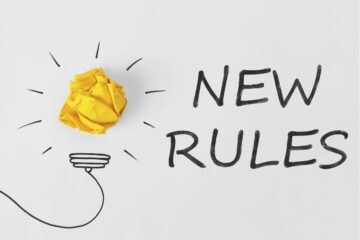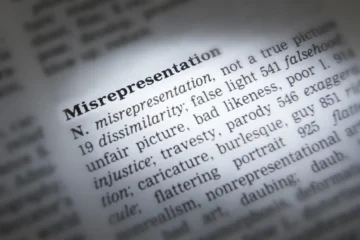How to Budget and Pay Debts When You are Behind on Bills?
You probably already know that if you have debt, you need to budget, save money and pay debts as soon as you can. However, if you are having trouble making ends meet then it will be difficult to pay, much more save and do budgets.
But it doesn’t mean you have to give up and continue living your life as it is, right? Because who doesn’t want to be debt-free (and stress-free)? For this post, we will help you with how you can pay your debts and create a budget when you are behind on bills.
If you are currently in this situation and you want to come up with a plan in order to pay your debts, here are the steps to get back on your feet.
How to Budget and Pay Debts When You are Behind on Bills?
Have a positive mindset.
This might be easier than it sounds, but this is very important. When you are in this situation, negativity attacks. You are maybe thinking of things like, “I’ll never be able to pay my debts”, “I’ll stay poor forever”, “and I’ll lose my home”.
These negative self-talks are self-killers. They never get you to do anything but be depressed. Believe that you can get out of debt, stay positive and be focused on things that you need to get out of this situation, then everything will fall in place as you are aiming for.
Remember, these problems are temporary and won’t last forever. These are challenges that will build your character as you overcome them gradually. You can do it!
Assess your current income and expenses.
Ever heard of the saying “face your fears?” If you have been putting off assessing your current financial situation because you feel afraid (or lazy – you hate math and bills), now is the time to get past that and get to work.
When planning to pay debts, assessing your current financial situation is the first step to getting out of debt. Why? Because if you know how deep a hole you are in, you will be able to plan (or seek advice) on how to get out of the hole.
So, how do you do this?
a. Write down your total income
Calculate how much you earn in a month. If your income is not fixed, think of the closest estimate. (Do not overestimate this part though. It is better to list down the lowest amount you can think of for this purpose). If you have a spouse, add it as well.
Note: The figure that you need to use is your net pay or the amount you receive in your bank or cheque.
b. Write down your expenses
This is where you write ALL of your expenses, including debts. Be honest with this one so you can accurately gauge how much you are spending every month.
You can check your bank statement for the last two months to help you know how much you paid in your bills, then make the best estimate for the rest of the food, transportation, and others. (In the coming days, do your best to list these down as you incur them so next month you do your expenses, it will be more accurate.)
Note: At this point, do not worry about Savings yet. You will need to add that to your budget later but right now focus on catching up.
If you do not want to write or create an excel for this, you can use Calendarbudget.com
c. Categorize
After listing your expenses down, you will need to determine the following:
- Fixed Expenses (these are expenses that remain the same every month and are paid on a regular basis, like mortgage, insurance plans, utilities, and phone plans.)
- Variable Expenses (these are expenses that change depending on your usage, like clothes, food)
- Debts (include all the debts here, including those that you are not paying)
d. Deduct expenses from your income
Add all of your expenses then subtract them from your income.
e. Identify your late bills
Highlight the bills that you are currently behind. These will be your first priority. It is important that you don’t fall further behind, so start first with identifying the most urgent bills.
Then list down how much you are behind. For example, your due is R100 and you are late by two months, R100 x 2 = R200, so you are behind R200.
Why do you have to do this?
Identifying how much you are behind and seeing if you are negative or positive on your income will give you a clearer picture of your financial situation.
Identify your Options.
You might think this is embarrassing, but the best option you have so far is to call your creditors (you’re not the only one who has this problem anyway). They would be willing to work with you, especially if you are sincere that you want to pay your dues.
Just explain honestly your current situation and for sure, they would tell you the best option that’s best for you. They can either reduce your payments, give you fixed payments or get on their programs.
How to negotiate with your creditors:
- Be courteous. Even if you are frustrated or angry, you still need to get your creditor to like you. So it would be best to remain calm, be respectful and confident. Speak in your normal tone like talking to a friend, and let them know your situation.
- Bargain. You will most likely be bargaining with him on what your payments would be, so it’s best not to tell them outright how much you can afford. For example, if you can afford R200, say R150 first. They will try to haggle anyway, and bargaining will let them feel that you are cooperating.
- Be patient. This might not work at first because you will be probably be talking to a customer service agent, and the one who can negotiate is a few steps or desks away. If the first one you called was not able to help, call on the other day until you find someone who is willing to help. If this still does not work, ask them to cancel your service, they will most probably lead you to the right person.
- Remember not to let yourself be rattled by them (it’s one of their jobs to do so to force you to pay). Because if you do you might end up agreeing on a monthly payment that you can’t afford. And never give them access to your bank account for automatic withdrawal.
Reduce your spending.
If you have done the budget in step 1, you will clearly see which your problem areas are. Remember the variable costs you identified in the previous step? Those are the items that you can cut or reduce. Identify honestly which of those items are needs and which are luxuries.
For example, if your food allowance is too big, maybe you can cut on items that are not really necessary. Like coffee every morning, fast food, or sweets.
Cut those that you don’t really need, like Dstv, Netflix, magazine or other subscriptions, gym, new clothes every month, movies, and the like.
Some will say that you should move out of your house and transfer to the one with a lower monthly cost. If this is something that you can do with no problem, it will greatly help decrease your expenses.
If you can’t afford your mortgage payments, you might want to stay since it will take a few more months before the house gets repossessed. And by then you might have been already able to fix your financial life.
Note that this might not be best for everyone, so think about this properly and decide what is best for you and your family.
Look for additional income.
This is self-explanatory, and the reason is obvious. However, circumstances can be different for everyone, and not all can take another job (or transfer to a higher-earning job), especially if you have kids to take care of.
But just in case you can do some work in the comfort of your home (when kids are sleeping or they are at school), why not try it? Some of them won’t require a lot of time.
Redo your budget every month.
Now that you have determined which categories you will reduce or cut spending, redo your budget with the new amounts. Then do your best to follow that budget.
Note that creating your budget for this exercise doesn’t mean things will stay the same for the next month and you don’t need to do another budget. As mentioned earlier, you need to record your monthly expenses so you can do your budget more accurately.
It will be easy to fall into your old habits a few weeks (or days) after this, so a budget will help keep you on track.
Also, you might not get it right the first time, as most of us have experienced. Don’t worry, just keep on practicing creating your budget and who knows, you might be able to get out of debt faster than you realized. You might be able to help someone in debt too.
So those are the top tips on how to budget and pay debts when you are broke. If you want to look for professional help like if you are not sure if you should enter a debt management plan, The National Debt Review Center is just a phone call away.
Just call our numbers below or leave us a message on Facebook.
0878221249 or 0411011037



2 Comments
KGOBE MACHUISA · October 28, 2021 at 11:35 am
Hi,
I am looking for a professional help and not sure I must join national review plan.
The National Debt Review Center · November 2, 2021 at 5:44 pm
One of our professionals will be in touch with you shortly.